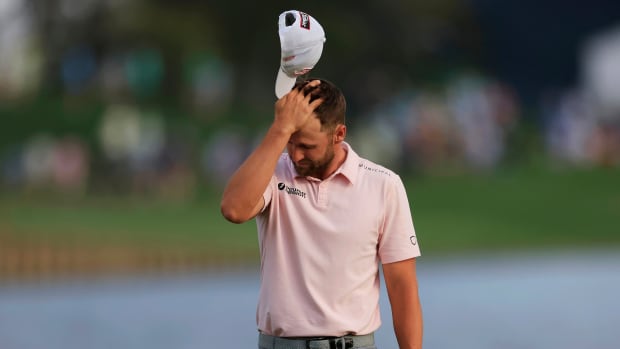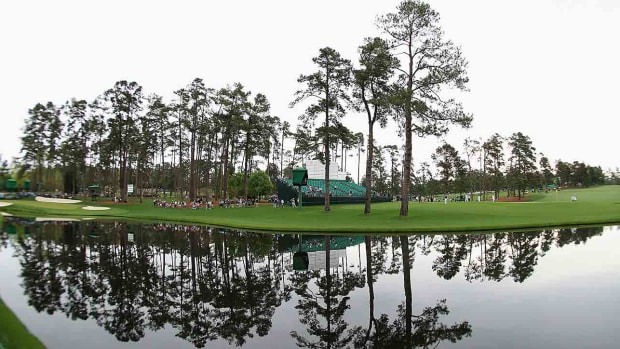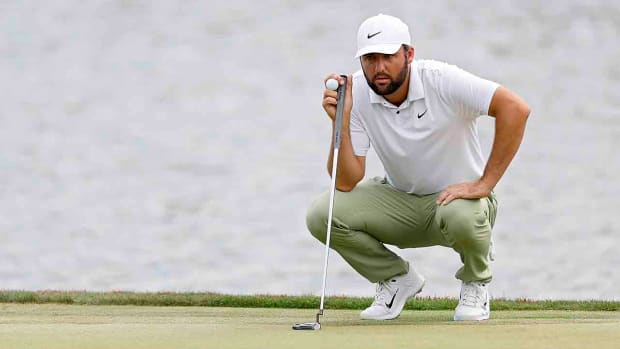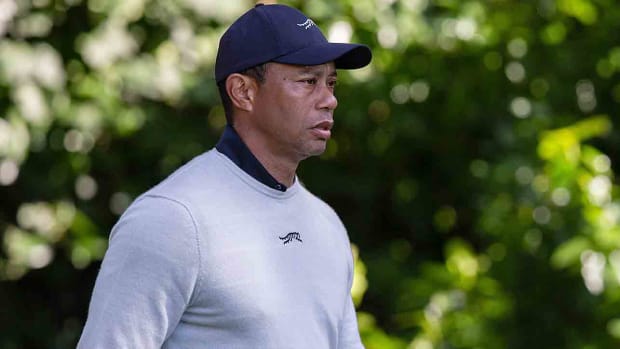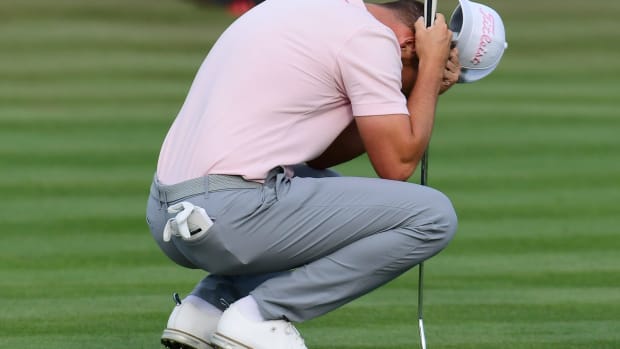
Rory McIlroy Outlines Vision for Elite, Champions League-Style World Golf Tour
LOS ANGELES, CALIF.—Rory McIlroy reiterated his desire on Saturday to see some sort of World Tour put in place to help unify the game that has been fractured for the past two years.
McIlroy, a former member of the PGA Tour Policy Board who resigned his position last year and was replaced by Jordan Spieth, remains a strong voice in the process in the wake of the formation of PGA Tour Enterprises, a new for-profit entity that was formed with the DP World Tour—and would include the Public Investment Fund of Saudi Arabia if a deal is worked out.
The Tour recently announced an agreement with Strategic Sports Group that will see the private equity company consisting of various wealthy sports ownership groups invest some $3 billion in the new company.
A big question remains: what will PGA Tour Enterprises look like? How will it bring the kind of return necessary to support such investment?

Despite leaving the PGA Tour Policy Board, McIlroy remains a strong voice in shaping the future of golf.
IMAGO/ZUMA Wire
“I would think it would be one tour,” McIlroy said Saturday following his third round at the Genesis Invitational. “I think you would just create a tour for the top 80 players in the world.”
It would be separate from the existing tours, such as the PGA Tour, DP World Tour, LIV Golf and other worldwide tours, McIlroy said.
“Then I think everything sort of feeds up in that one,” he said. “The way I look at it, it would be like [the] Champions League in European football. It sort of sits above the rest of the leagues and then all those leagues sort of feed up into that and the best of the best play against each other in the Champions League is how I would think about it.”
The Champions League typically sees 32 teams qualify from the various national soccer organizations—such as the English Premier League, for example—from around Europe. The individual leagues remain prestigious in their own right and success in them is what leads to qualification into the Champions League.
McIlroy’s admittedly “pie-in-the-sky” idea would see tournaments played around the world with fields made up of players who qualify for the events.
“I think there has to be a component of the southern hemisphere, Australia, South Africa,” McIlroy said. “There obviously has to be a component of the far east, whether that be Korea, Japan, China. Obviously the Middle East as well. We’ve been going to the Middle East for a long time, but obviously Dubai, Saudi (Arabia), and then sort of working our way from east to west and back into the United States for the sort of spring, summertime.
“I don’t think it will look too dissimilar to what it is right now, but maybe the front end of the year and the back end of the year might look a little different. I don’t think we need to blow everything up, but there definitely needs to be some tweaks, I think.”
McIlroy, currently ranked second in the world, is making his second start of the year on the PGA Tour after winning in Dubai a few weeks ago. Formerly a harsh critic of LIV Golf, he has softened his stance on the rival league in the wake of Jon Rahm’s signing in December. As it stands, LIV players such as Rahm, Brooks Kopeka, Cameron Smith and Bryson DeChambeau would compete against PGA Tour stars such as McIlroy and Scottie Scheffler at the major championships.
But bringing the sides together has proved to be complicated. The “framework agreement” with the PIF that was supposed to be concluded on Dec. 31 has yet to occur. Some PGA Tour players, such as Spieth and Adam Scott, have questioned whether or not it is necessary to bring the PIF on board in the wake of the deal with SSG.
Earlier this week, when board member Tiger Woods was asked what he believes a new enterprise would look like, he said: “We’re looking at a very different—varying degrees of ideas and what that looks like in the short term, we don’t know. We don’t even know in the longer term what that looks like. Trust me, there’s daily, weekly emails and talks about this and what this looks like for our tour going forward.”

Like McIlroy, Woods has also been involved in conversations regarding change to the current structure of the tours.
IMAGO/ZUMA Wire
Veteran PGA Tour player Charley Hoffman, who left the policy board at the end of last year, also sees a more global aspect ahead.
“I don’t think I’m going out on a limb on this, the PGA Tour is going to look different in a handful of years than it does now and I think it’s going to be more international, but there’s going to be a ton of great domestic events and I think it's going to be a better product,” Hoffman said. “We didn’t evolve for a long time because we didn’t have to, and someone came along (LIV Golf) and we had to evolve. I think we’ll still be the lead tour, but we’re going to look a little bit different and it’s going to look a little bit better, I think.”
McIlroy said putting this all together is not simple.
“You have to make it work for everyone, but I think for the most part it has to work for fans and sponsors and media,” he said. “Then, if you can have it work for them and you create a product that’s really good for the fan, then honestly I think you just have to convince the players to buy into it because that's what's going to be best for them, especially if you’re going to be an owner of that tour.”
Asked if he believes his idea has any traction within the game, McIlroy said: “I think so, but again, I said this at the back end of last year, everyone’s got their own interests in this game and that’s what happens when you’ve got quite a fractured landscape at this point.
“So trying to align everyone’s interests and trying to convince everyone that this is the right thing to do for the game of golf as a whole, and if you can convince everyone of that, then it would be pretty simple. But right now it’s just trying to get everyone singing off the same hymn sheet.”
How this impacts the PGA Tour or DP World Tour is one of numerous factors to be worked out. McIlroy envisions fewer events, perhaps 24 on the PGA Tour including the major championships. That leaves 20 other tournaments and McIlroy said he could see playing in 10 to 12 of them in addition to the majors and the proposed world events.
“This is the biggest market in golf in the world, so you have to take that into account,” McIlroy said. “But there’s no reason why for other parts of the year that we can’t go further afield and play in some of those big markets. I think it would be beneficial not just for those markets and those fans, but also for the tour as a whole and media partners and sponsors and everyone else.”

